It was during his research to stop the horrendous forest fires of Jharkhand that Vikas Ujjwal, Divisional Forest Officer (DFO) of Jharkhand’s Lohardaga district, came across a Class 6 physics chapter. According to the ‘Fire Triangle’ chapter, forest fires can be attributed to three components — fuel, heat and oxygen.
Considering that there is possibly no way of tackling heat and oxygen, Vikas focussed on the ‘fuel’ aspect, which in Lohardaga’s case was heaps of fallen leaves. Here he also saw a lucrative employment opportunity but, most importantly, found a way to save his ecosystem in a simple way.
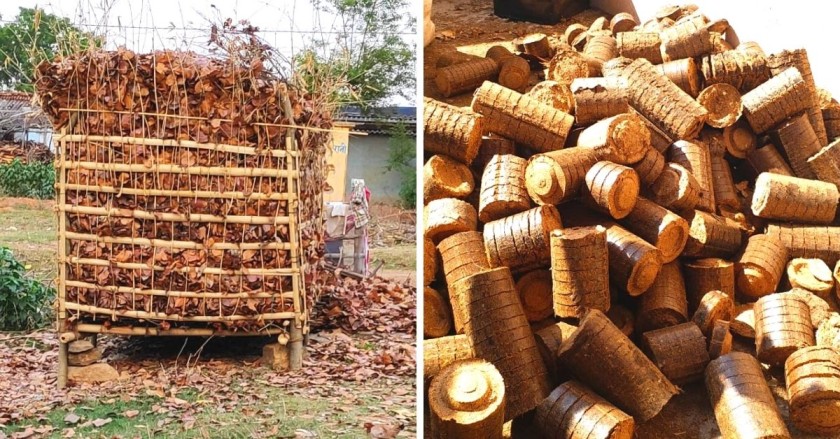
The 2016-batch Indian Forest Officer (IFS) installed a machine in the Tisiya region to convert dry leaves into briquettes, an eco-friendly artificial fuelwood. The project commenced in April 2019. Since then, the forests in this part of Jharkhand have not witnessed any major fires.
The best part?
As briquette makes for good fuel, villagers have discontinued the illegal cutting of wood and stopped burning leaves, which are now an asset.
“Forest fires are a nightmare and result in ecological disasters that are impossible to control through conventional methods. I realised that we are fighting a war with the age-old conventional methods of dousing fires by beating them with bushes and tree branches. This is a ‘post-mortem’ approach where the response is meted out after the damage has already been done,” Vikas tells The Better India.
He adds, “Moreover, there is hardly anything edible or drinkable left in the forest after the fires, which lasts for four to five months. As a result, wildlife migrates towards human habitations resulting in human-wildlife conflicts. In April 2019, a wild bear killed a villager and injured many others. This forced us to adopt a preemptive approach for forest fire mitigation.”
Fortunately, the briquette solution proved to be in line with the National Action Plan on Forest Fire which provides a framework of forest floor biomass management. Using the government’s plan, the IFS officer executed the project.
Feeding Two Birds With One Scone
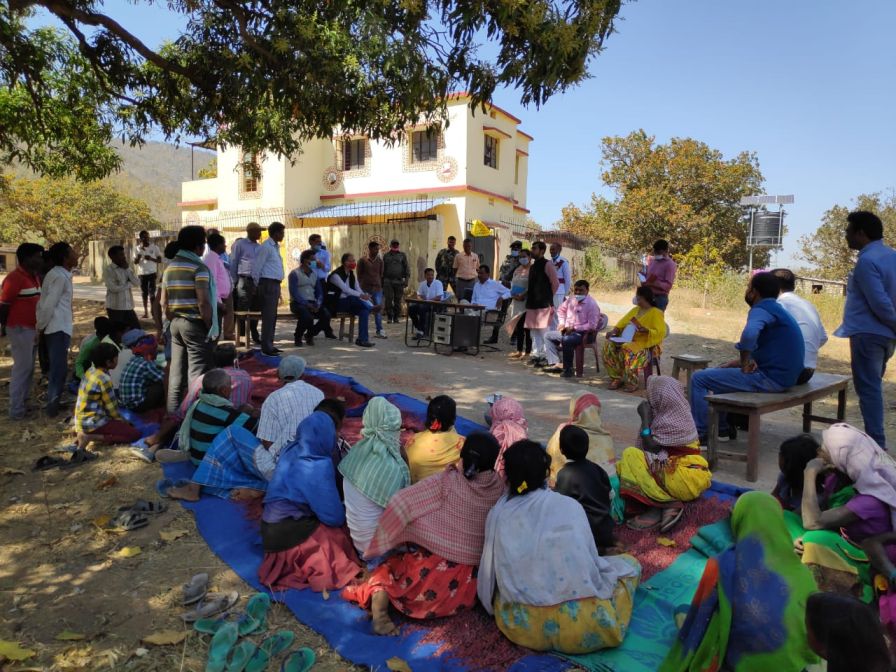
At first, it was hard for any villager to believe that their incomes would increase by selling leaves, that too, if the per kilo price was a meagre Rs 2. And rightly so. Why would anyone refrain from selling wood illegally or burning leaves to free up unclaimed land to grow crops, if it gave decent returns?
That’s when the forest department, led by Vikas, gave the case study of flourishing ecotourism. A couple of years ago he helped villagers from other parts of the district generate income from ecotourism which resulted in villagers refraining from cutting and selling trees illegally. He assured villagers from Tisiya region of a guaranteed income with a detailed step-by-step process.
“Gradually, everyone understood the importance of preventing forest fires and came onboard. The project is funded under the ‘Special Central Assistance’ Scheme—which aims at critical gap funding in Naxal affected districts—where officers from district administration played a crucial role in its success. The whole management of the briquette plant is managed by the Joint Forest Management Committee (JFMC) which comprises 15 people from different villages.
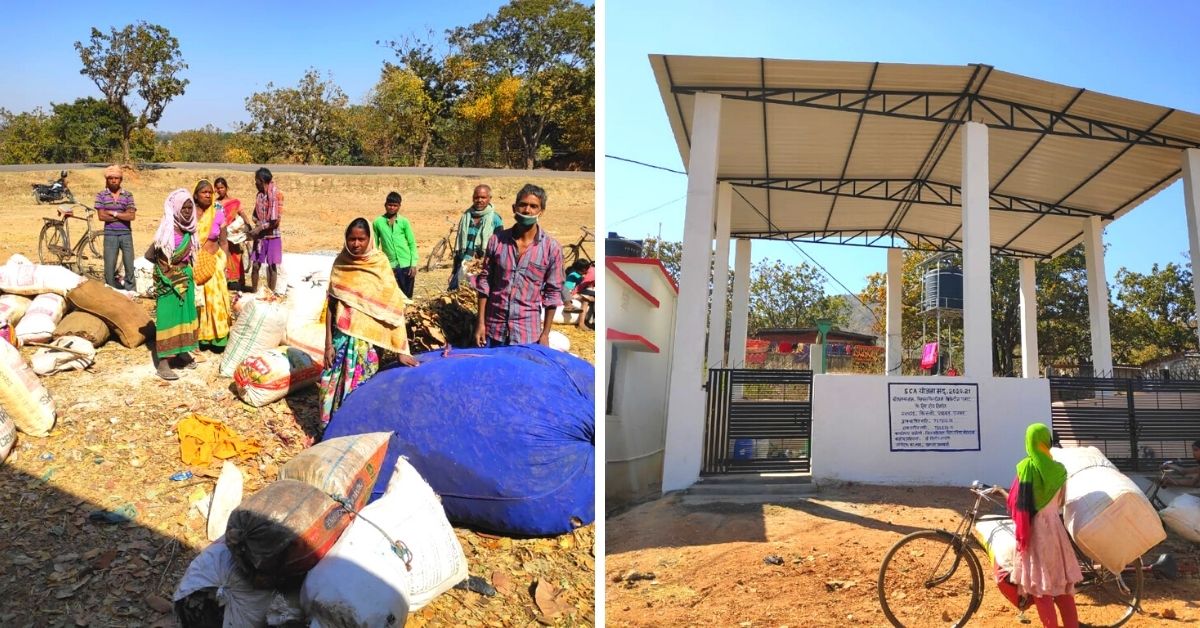
The plant, which has the capacity to process about a tonne of leaves per day, has engaged close to 400 people across 13 villages. All one has to do is collect leaves and deposit them at the plant. The payment is done on a weekly basis and each person can earn up to Rs 8,000 per week or Rs 300 per day.
“It has been two weeks since I have joined this initiative and every day I collect up to 200 kilos of leaves. My weekly earning is Rs 2,000, which is double of what I earned as a wage labourer. This is a lucrative opportunity for me,” says Rahila Kerkata, a local from Salaiya village.
“The villagers are realising the monetary value of leaves and this has drastically reduced leaf burning. Salaiya village, which is named after a tree, is a highly dense forest area. This means we experience more fires. But with this new initiative, 80 per cent of fires have reduced,” says Aditya from the forest department who manages the plant.
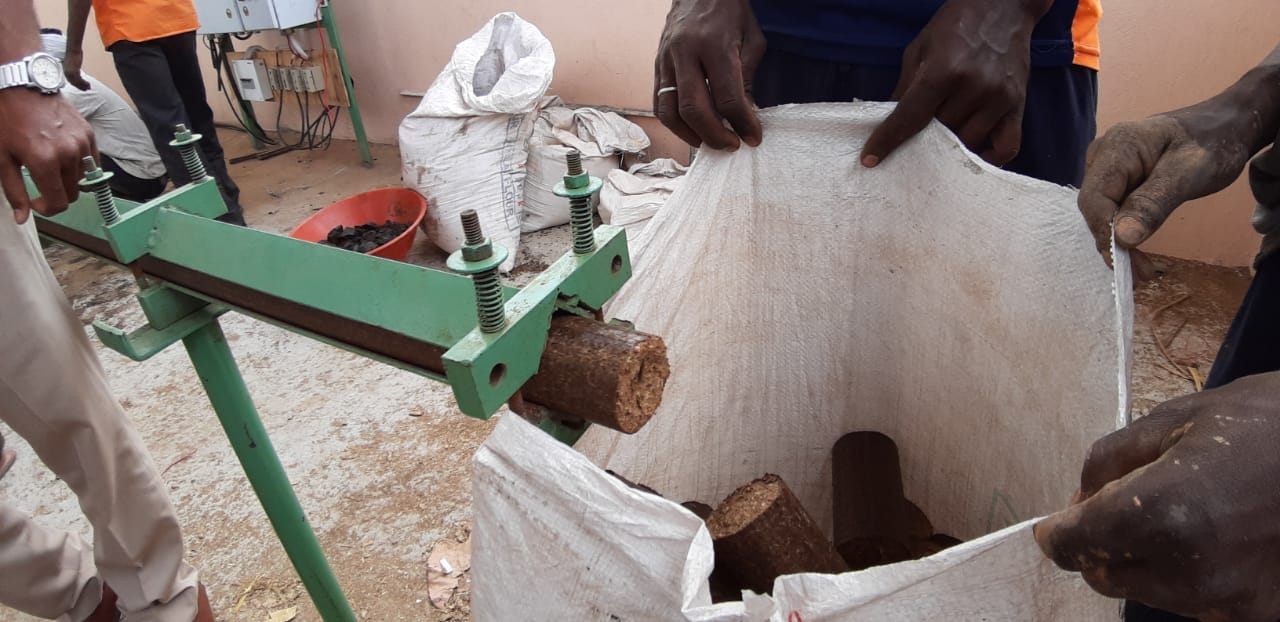
The newly formed briquettes are then sold in the local market to tea shops, local industries and brick kilns. Vikas says that briquette is not only a cheap fuel source but also less polluting in nature. This has eliminated the need to use wood from the forest.
Seeing the impact and benefits of this, many villagers have appealed to the forest department to install more such plants. “This kind of enthusiasm from locals is a first. And I am tremendously happy to fulfil their wish. The project is in the pipeline,” says Vikas.
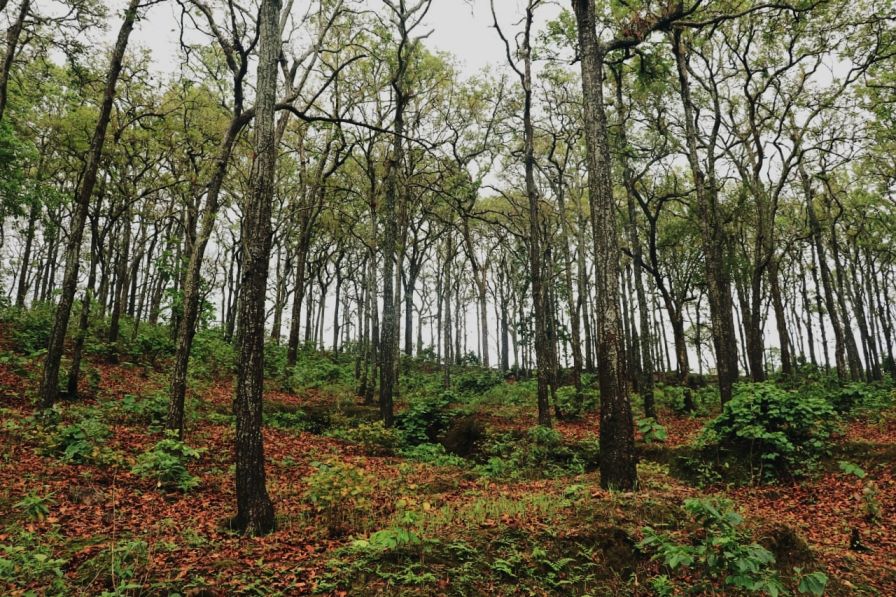
The forest department and the people of Lohardaga are shining examples of how an economic boost and ecological preservation can go hand-in-hand instead of one being achieved at the cost of the other.
All images are sourced Vikas Ujjwal
Edited by Yoshita Rao
No comments:
Post a Comment